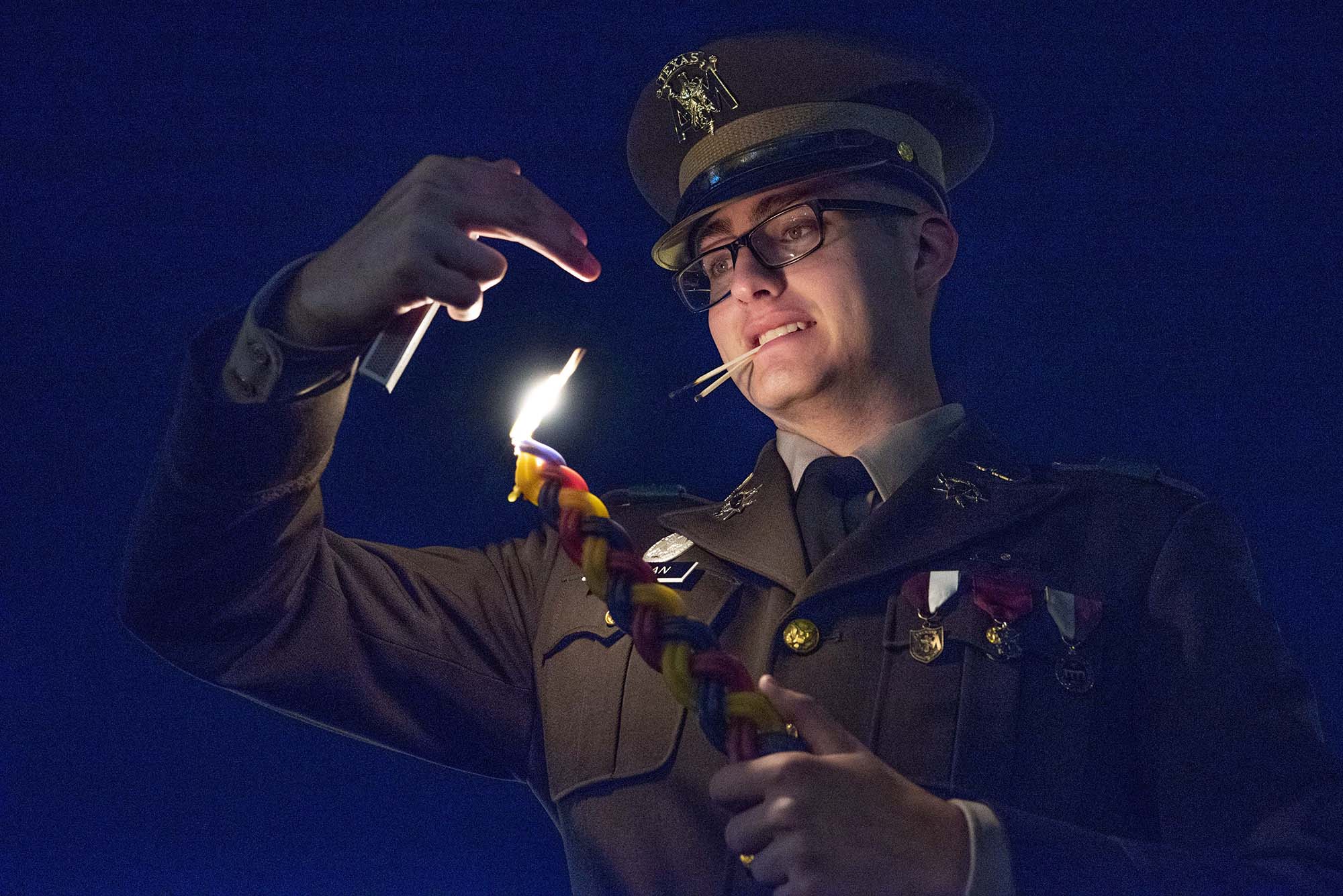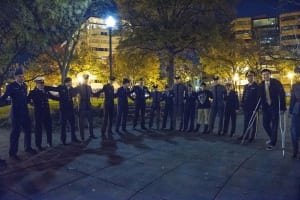
Army Cadet Jacob Widman from Texas A&M kindles a Havdalah candle during a Jewish ceremony marking the end of Shabbat in Washington D.C.
By: Sabrina Fine, Communications Intern
Jewish Warrior Weekend, an event which brings together Jewish cadets and midshipmen for a weekend of learning, comradery and celebration of Judaism, took place in Washington, DC, November 8-11.
The event brought together forty-nine officers in training, who had the opportunity to learn about the history of Jewish military service in America.
On Friday, Shabbat services were observed and Saturday evening’s activities included a Havdalah ceremony outdoors in DuPont Circle. Havdalah is a ceremony that marks the end of the Shabbat and is supposed to reawaken the senses, including smell.
In the crisp fall air, cadets and midshipmen placed their arms on each other’s shoulders and swayed in a circle while reciting prayers, watching the glow of a colorful Havdalah candle, sipping from the Kiddush cup and smelling the ceremonial spices. People in the area stopped to watch and photograph the cadets and midshipmen as they joyfully sang and chanted.

Jewish cadets and midshipman celebrate Havdalah in DC.
After the ceremony, Rear Adm. (Ret.) Paul Becker shared inspirational advice to the young future officers on Jewish military life.
“It is good to build a comradery with other Jewish warriors,” said Becker. “As it is, we are few in numbers and there is value and strength in knowing there are others out there like you.”
Often times there are only a few Jewish service members at each a command.
“In some cases, you might be the first Jew they meet and they may have some stereotypes,” said Becker.
Therefore, he stated that Jews in a command have a responsibility to represent a culture. He also stated that it is possible to abuse this representation by overly requesting leave or attempting to fool others about Jewish holidays.
“It is important to prioritize how you put effort as a Jewish lay leader, or toward the Jewish holidays,” said Becker. “For example, High Holidays are at the top but you don’t want to expend any effort trying to convince your chain of command that there needs to be some type of commemoration of minor holidays like Tisha B’av.”
Sunday began with a guest speaker – former Army Officer Phil Carter, a senior researcher who focuses on veterans, military personnel and civil-military relations.
The weekend ended on a somber note, with a visit to the United States Holocaust Memorial Museum on Sunday afternoon. Ben Kane, Programs Assistant at JWV, led interested participants on a tour.
“I enjoyed the Holocaust Museum in the sense that I am glad that there is a museum dedicated to such a tragic event,” said Cadet Jacob Widman. “It was meaningful because I learned more about the US involvement in the refusal of refugees, and other topics not covered at Yad Vashem.”
Jewish Warrior Weekend is an annual Shabbaton program. This year was sponsored by the Jewish War Veterans of the USA, National Museum of American Jewish Military History, USAA, Jteen Philanthropy, Joseph Goldstein, Rabbi Steven Rein, Dallas Jewish Federation, Temple Sinai, Temple Micah and Stratton-Petit Foundation.
Volume 72. Number 4. Winter 2018

